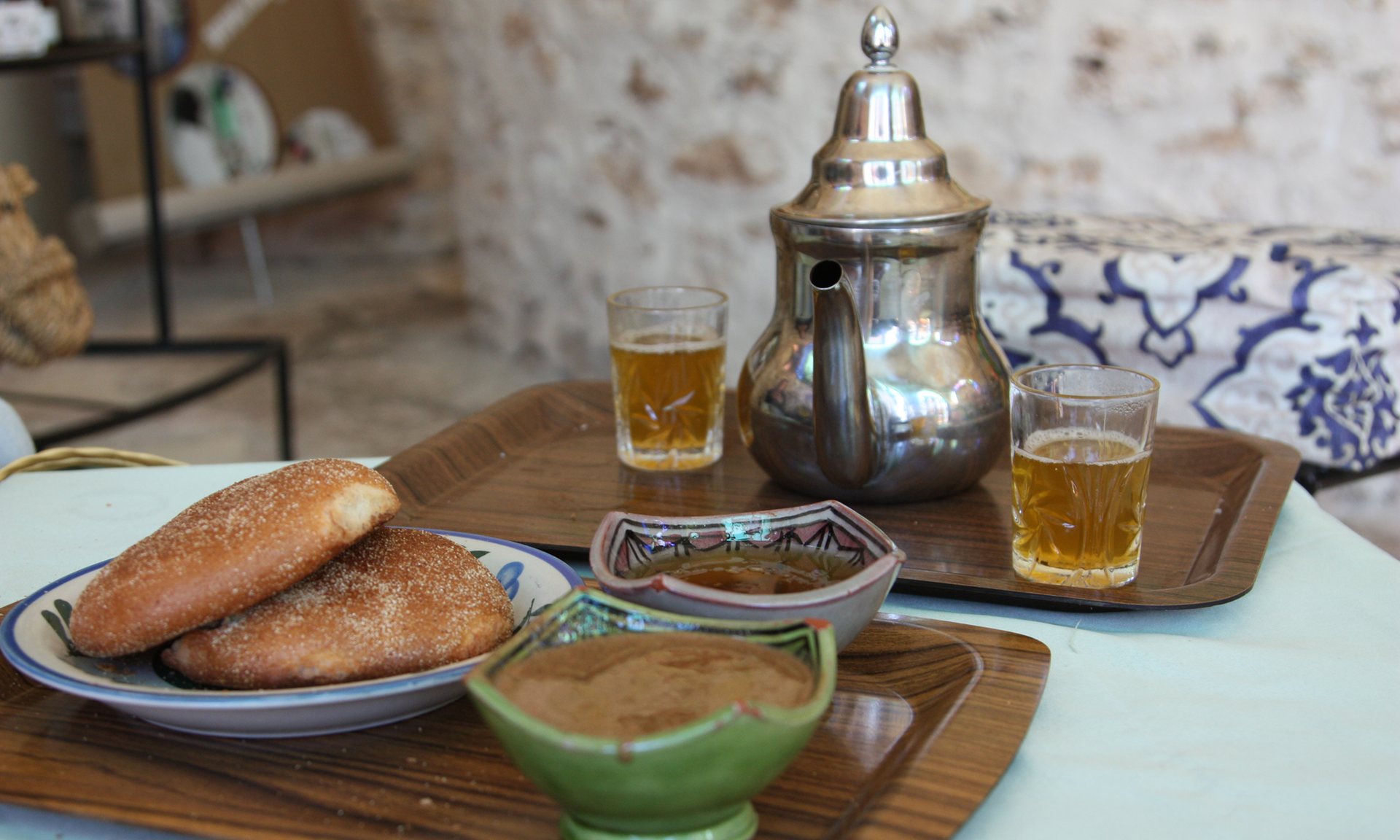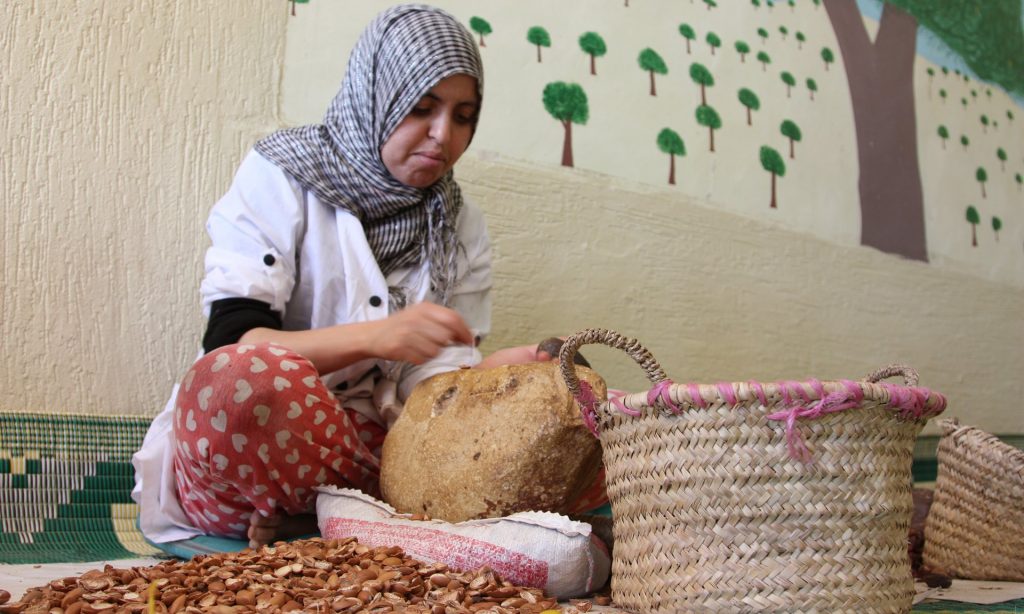Ripe, yellow argan berries fall to the ground in the courtyard of the Ajddigue women’s argan co-operative in the village of Tidzi, 25km south of Essaouira. Under the argan trees handmade beauty products are on sale.
Khaltoum Alta, who has worked at this co-op since 2005, deftly smashes a dried nut shell on a stone, discarding the bitter kernel and picking out the almond heart of the argan fruit.
“I’m the sole earner in my family after my father died in 2011,” she says. “My job here has allowed me to look after my mother, sister and little brother. He will be starting at university in Agadir in September; without my wages he wouldn’t be able to – he needs at least 500 dirham a month for his rent and food.”
Ajddigue – which means flower in the Amazigh Berber language – is one in a network of 30 co-operatives that, since 1996, have been turning Morocco’s “gold” into a thriving business that is changing women’s lives. It is not only giving them money and access to international markets, it is also giving them status and turning traditional views about the role of women in society on their head.
When pressed, the argan tree’s fruit produces a luxurious oil which is rich in fatty acids, omega-6 and vitamin E. Argan is said to help treat many skin and hair conditions. Over the past 20 years, a movement of women’s co-operatives has developed to gather and process the argan nuts to use in everything from face cream to massage oil to nut butter.
In 2015, Morocco produced about 4,000 tonnes of the oil, about a third of which was exported. A litre of pure argan oil can fetch as much as €25. The co-operatives have been immensely successful and much of the produce is now bought by large global beauty brands including L’Oréal and Aveda. The Body Shop in the UK works with the Targanine network of co-operatives from where it sources organic argan oil for body butter, face creams and bath foams.
“The best thing about argan is that all parts of the tree can be used, and it’s something that’s just here for free, local and special to Morocco,” says Zoubida Charrouf, a lecturer at Mohammed V University in Rabat. After completing her PhD researching the qualities of the argan tree in the early 1980s, she started to look at ways to commercialise the oil production, which resulted in the cooperatives.

Photograph: Celeste Hicks
“The leaves are fed to goats, the discarded kernels are used for fuel for cooking and of course the oil has been found to have excellent health benefits.
Each hectare planted with argan trees can generate about €400 a year – a significant sum for remote villages in the Agadir region. National income per capita in Morocco is about €3,000. “I can buy gas for cooking now, electricity for my home – I even bought a fridge,” says Alta.
The co-operatives have also been used as a base to educate and empower women. “In the beginning men did not want their women to go out to work,” says Charrouf. “We had to really encourage the women, giving them confidence to deal with budgets and sale prices, and to teach them to negotiate with international buyers.”
Alta, who like many women in the region was never sent to school, has learnt to read and write Arabic and do basic maths. The Ajddigue women regularly consult buyers in France, Japan and Canada, processing orders for refined argan oil.
“We set the price. We process the orders over the phone or on the internet, then we package it up and sent it directly from the post office to our customers,” says Bouchra Amcher, another member of the co-operative. “There’s no middle man involved, no one to come and take our products for nothing and who will sell our products at a huge mark-up to international companies.”
Ajddigue is one of three co-operatives in Charrouf’s network to have gained a certificate for Fairtrade and organic production. The women produced 16 tonnes of argan oil last year and had a turnover of 1.7m dirhams (£120,000). Profits are shared between the co-operatives’ 60 women according to the amount of oil they produced.
Argan trees also play a crucial role in the battle against desertification in this arid region where rainfall has become more erratic due to climate change. Charrouf’s research in the 1980s showed the benefits of argan forests – the trees have deep roots, which means they can reach deep pockets of groundwater, and help stabilise the soil.
In the 1970s argan trees were being lost at a rate of 600 hectares a year, but the success of the co-operative movement has halted deforestation. There are now more than 800,000 hectares (2m acres) of argan forests in Morocco, with the government planning to plant another 200,000 hectares.
“For me, the biggest success has been women’s empowerment, both economically and socially,” says Charrouf. “Our co-operatives have ordinary female members from marginalised communities who have gained credibility. They’ve shown they can work with big international companies, they’ve spoken to ministers. Now people respect them.”

